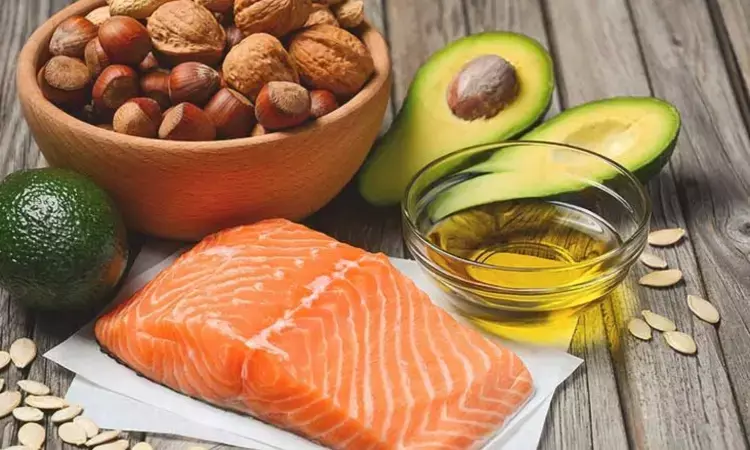- Home
- Medical news & Guidelines
- Anesthesiology
- Cardiology and CTVS
- Critical Care
- Dentistry
- Dermatology
- Diabetes and Endocrinology
- ENT
- Gastroenterology
- Medicine
- Nephrology
- Neurology
- Obstretics-Gynaecology
- Oncology
- Ophthalmology
- Orthopaedics
- Pediatrics-Neonatology
- Psychiatry
- Pulmonology
- Radiology
- Surgery
- Urology
- Laboratory Medicine
- Diet
- Nursing
- Paramedical
- Physiotherapy
- Health news
- Fact Check
- Bone Health Fact Check
- Brain Health Fact Check
- Cancer Related Fact Check
- Child Care Fact Check
- Dental and oral health fact check
- Diabetes and metabolic health fact check
- Diet and Nutrition Fact Check
- Eye and ENT Care Fact Check
- Fitness fact check
- Gut health fact check
- Heart health fact check
- Kidney health fact check
- Medical education fact check
- Men's health fact check
- Respiratory fact check
- Skin and hair care fact check
- Vaccine and Immunization fact check
- Women's health fact check
- AYUSH
- State News
- Andaman and Nicobar Islands
- Andhra Pradesh
- Arunachal Pradesh
- Assam
- Bihar
- Chandigarh
- Chattisgarh
- Dadra and Nagar Haveli
- Daman and Diu
- Delhi
- Goa
- Gujarat
- Haryana
- Himachal Pradesh
- Jammu & Kashmir
- Jharkhand
- Karnataka
- Kerala
- Ladakh
- Lakshadweep
- Madhya Pradesh
- Maharashtra
- Manipur
- Meghalaya
- Mizoram
- Nagaland
- Odisha
- Puducherry
- Punjab
- Rajasthan
- Sikkim
- Tamil Nadu
- Telangana
- Tripura
- Uttar Pradesh
- Uttrakhand
- West Bengal
- Medical Education
- Industry
Lowering cholesterol intake alone may not be enough to prevent CKD, study finds

South Korea: Findings from two Korean cohort studies revealed that simply lowering cholesterol intake may not be sufficient to prevent chronic kidney disease (CKD). The study was published online in Nutrition, Metabolism and Cardiovascular Diseases.
The researchers showed that although cholesterol intake was associated with increased serum cholesterol levels, it was not associated with CKD incidence and prevalence. The daily intake of eggs was not associated with incident CKD.
Although dyslipidemia is a major risk factor for chronic kidney disease, there is no knowledge of the relationship between dietary cholesterol and chronic kidney disease. Haekyung Lee, Soonchunhyang University Seoul Hospital, Daesagwan-ro, Yongsan-gu, Seoul, Republic of Korea, and colleagues investigated the association between cholesterol intake and CKD risk.
The researchers used the Korea National Health and Nutrition Examination Survey (KNHANES) 2019–2021 (n = 13,769) and the Korean Genome and Epidemiology Study (KoGES) (n = 9225) data for the study. Cholesterol intake was evaluated using a 24-hour recall food frequency questionnaire. Participants were categorized into three groups based on cholesterol intake: T1, T2, and T3. The primary outcomes were the prevalence and incidence of CKD.
The researchers reported the following findings:
- Higher cholesterol intake was modestly associated with increased serum levels of total, low-density lipoprotein, and high-density lipoprotein cholesterol in the KNHANES.
- There was no significant association between cholesterol intake and CKD prevalence in the KNHANES, regardless of a history of hypercholesterolemia.
- In the KoGES, during a median follow-up of 11.4 years, cholesterol intake was not associated with incident CKD in participants without hypercholesterolemia (hazard ratio [HR] per 10 mg increase, 1.00) and in those with hypercholesterolemia (HR, 1.01).
- Egg consumption also showed no significant association with the risk of incident CKD.
- Cholesterol intake had no significant relationship with serum cholesterol levels and incident CKD.
In conclusion, although cholesterol intake was associated with increased serum cholesterol levels, it was not associated with CKD prevalence and incidence.
"Our findings suggest that reducing cholesterol intake alone may not be sufficient to prevent chronic kidney disease," the researchers wrote.
Reference:
Lee H, Park J, Kwon SH, Jeon JS, Noh H, Kim H. Dietary cholesterol intake is not associated with the development of chronic kidney disease: Results from two Korean cohort studies. Nutr Metab Cardiovasc Dis. 2024 May;34(5):1198-1206. doi: 10.1016/j.numecd.2023.12.011. Epub 2023 Dec 16. PMID: 38218709.
Dr Kamal Kant Kohli-MBBS, DTCD- a chest specialist with more than 30 years of practice and a flair for writing clinical articles, Dr Kamal Kant Kohli joined Medical Dialogues as a Chief Editor of Medical News. Besides writing articles, as an editor, he proofreads and verifies all the medical content published on Medical Dialogues including those coming from journals, studies,medical conferences,guidelines etc. Email: drkohli@medicaldialogues.in. Contact no. 011-43720751


